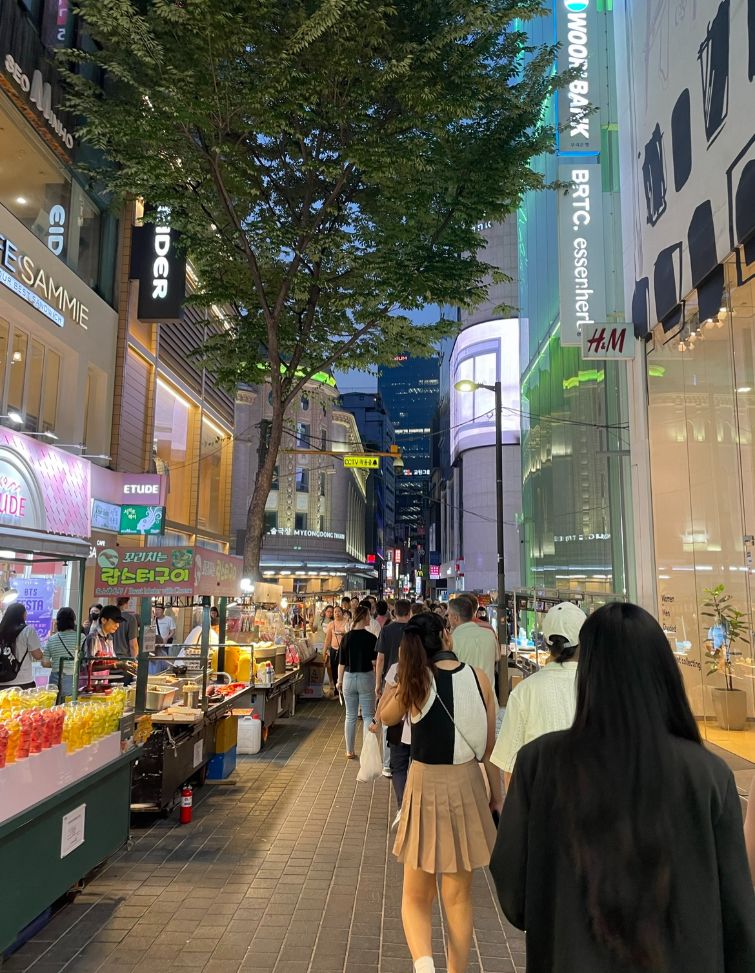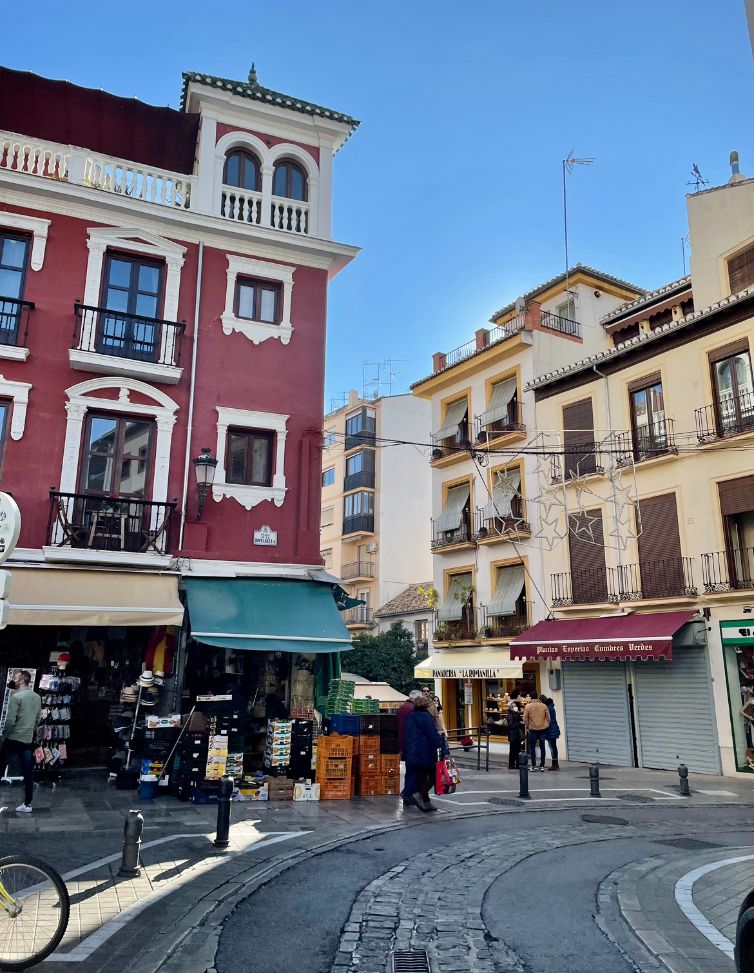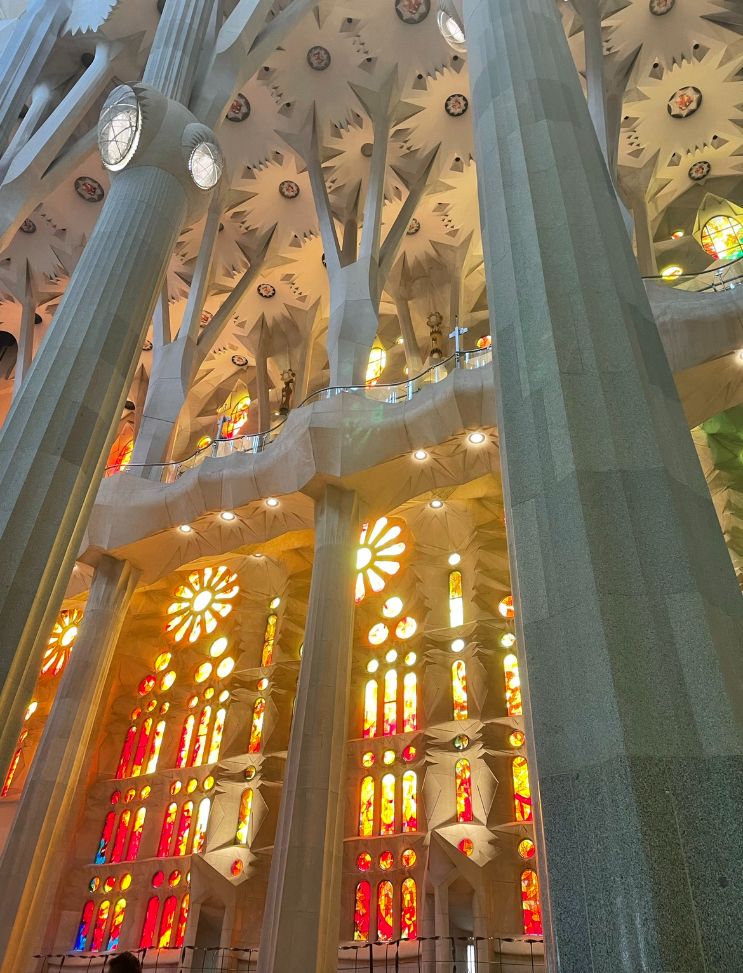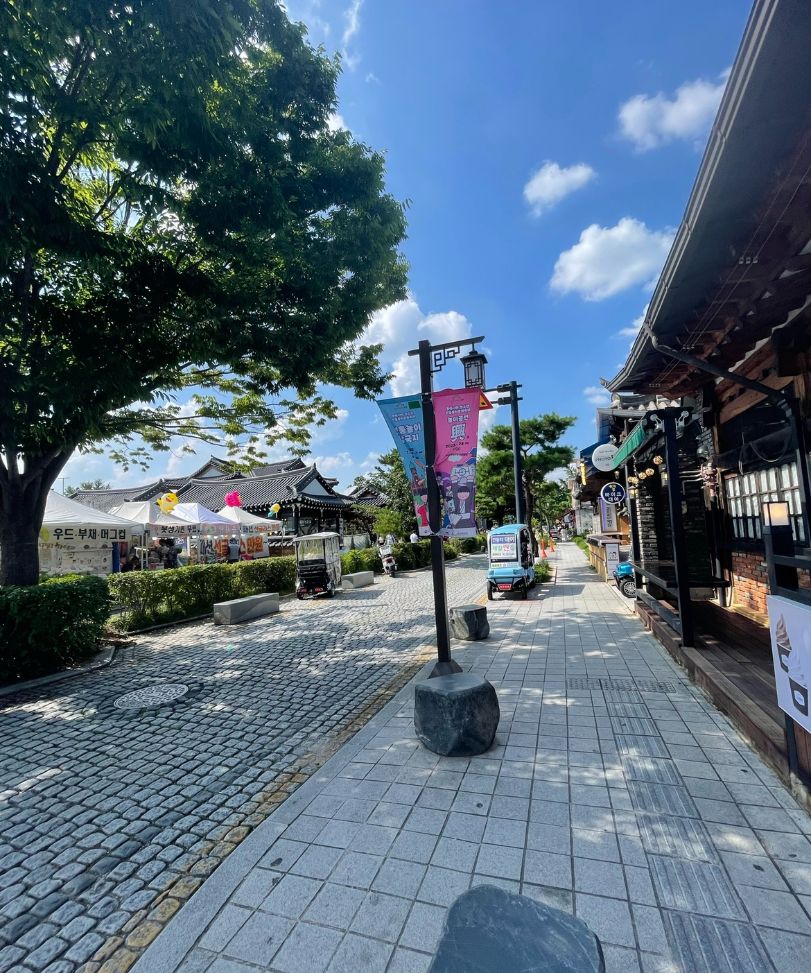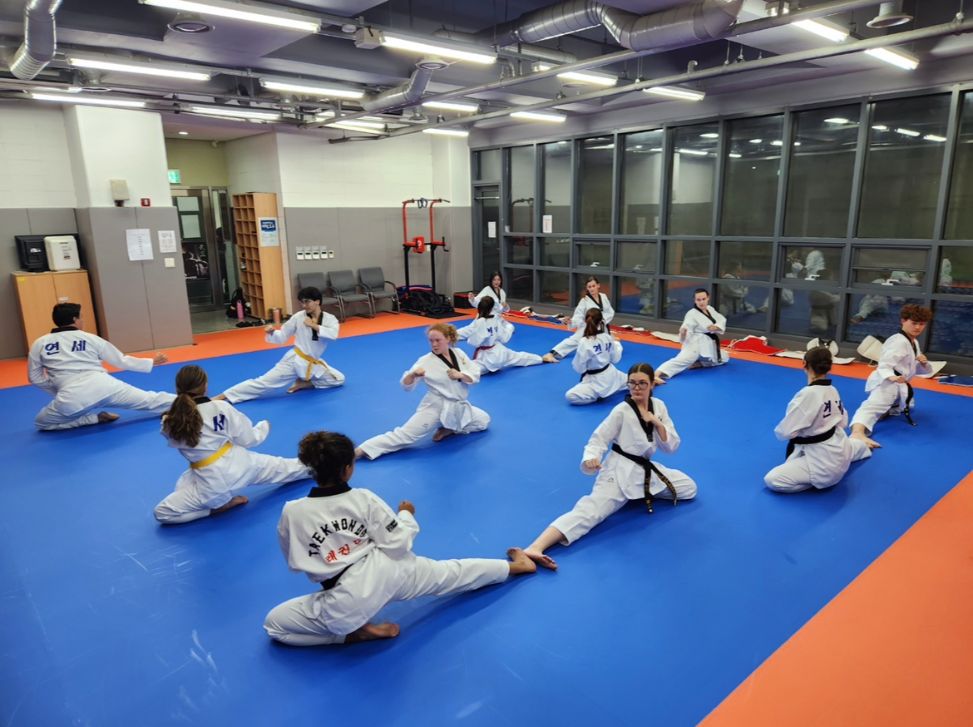Isabella Adams
About My Study Abroad Program
Major/Minor: Political Science and History Major, Spanish Minor
Program: UNC Global Launch (Universidad de Granada) and Yonsei International Summer School (YISS)
Location: Granada, Spain and Seoul, South Korea
Email: bellapa@ad.unc.edu
Term: Fall 2021, Summer 2023
Why did you choose to study abroad and how did you select your program?
I discovered the application for my first study abroad experience in Spain on the initial application to UNC on the Common App. I filled it out not thinking I would be admitted to the program, nevertheless UNC, but was incredibly excited when I heard I was going to Spain for my first semester of college with my dream school. I wanted to go somewhere outside of the United States at least for a time after I finished high school to gain a more global perspective, and this was the perfect opportunity. I chose to study abroad a second time in South Korea for a few different reasons, the first being that I wanted to go somewhere different that would put me outside of my comfort zone. I have gotten the chance to travel to Europe a few times with my family, as well as many places in Latin America, especially Mexico to visit my family. I loved these trips, but I wanted to go somewhere that would challenge me in new ways. As I looked for programs I could apply to I soon realized South Korea had so much to offer both culturally and in its beautiful cityscapes and countryside. Additionally, I am a member of the UNC Taekwondo Club and I wanted to practice the sport in its country of origin so I could continue to grow my skill in the sport I love. To top it off Yonsei also offered classes I need for both my History and Political Science majors.
What did you learn about yourself?
I would say that through my first study abroad experience I learned how to be truly independent. Going to a foreign country, although one where I knew the language, during my very first semester of college seemed daunting at first. However, it helped me grow and mature quickly, as well as helped me take care of myself in a variety of environments. My second experience challenged me even more, largely because of the greater culture shock I experienced than when I went to Spain. However, I was able to make the most of my time at Yonsei by learning the skills to be able to adapt to a variety of situations, such as trying to converse with a shopkeeper in broken Korean to buy something I needed. I learned I am tougher than I thought I was, and that even if I am in a country where I know very little of the language I can still find my way around, even making friends and amazing memories.
What is one of your favorite memories from your program?
One of my favorite memories from my experience abroad in Spain is pretty simple, but walking to and from class and taking in the beautiful sights of Granada every day was something that stuck with me significantly. Another is one weekend some of my friends and I went on a weekend trip to Barcelona and got to see the Sagrada Familia cathedral, one of my favorite and most stunning I've gotten to see in Spain. One of my favorite experiences from my time in South Korea was getting to do Taekwondo with a highly experienced master, as well as many students of all skill levels. We had practice twice a week and we were also able to have a demo performance in front of all of the YISS student body at the end of the term to show what we had learned. Another favorite memory is getting to go on a trip to Jeonju, South Korea with one of my friends. This is a very traditional Korean town that has a famous village with hundreds of beautiful hanok-style houses. I got to do a stamp-making class where I engraved my name in Hangeul on a traditional jade stamp with my friend, had tea and desserts at a traditional tea house, and also ate some of the most amazing bibimbap.
What advice do you have for future study abroad students?
One piece of advice I would offer students is to not be afraid to reach out to peers in your program that you trust or have become friends with if you find yourself struggling in any way. Studying abroad is not designed to be done alone, but rather in a community with like-minded people who have similar aspirations as you. Another would be to always take time for yourself and unwind, even if you have a busy schedule. Taking care of your mental and physical health is incredibly important, especially when you find yourself in a new and perhaps challenging environment.
How do you identify?
Student of color, Student with a disability
Could you share any experiences where your identity played a role in your time abroad?
When I was in Spain my identity as a Mexican-American was central to my time there. First of all, there is a lot of overlap with Spanish and Mexican culture since they colonized us, so there were many things about Spanish culture that I was familiar with. Additionally, knowing the language helped me to communicate with locals and my host mom as well. When I was in Korea, my identity as a "foreigner" often invited stares and occasioanlly some xenophobic sentiments from locals, but I was able to make friends with other international students like me in the program as well.
Is there any advice you would give to other students who share your identity?
I would say that regardless of where you study abroad, don't be afraid to show aspects of your identity that are different than that of other people. One thing that makes studying abroad amazing is meeting people from all around the world, and the experience is made better when everyone is their most authentic selves. Don't feel like you have to blend in with your peers around you, and be open to discussing things about your culture or identity that people may not know about or are maybe curious to know.
If you faced any challenges abroad, where could you turn to get the support you needed?
When I was in Spain I didn't really struggle significantly with anything identity-related, but I did a bit when I was in South Korea. When I felt I was being negatively labeled as a "foreigner" I often turned to my friends I had made during the program. I talked to them about the insecurities I felt when this sort of labeling happened and how we could view it moving forward. If I felt I needed further support I would occasionally call my family back home and tell them about specific instances when I felt out of place or uncomfortable. Despite these occasional bumps, my time in Korea was unforgettable and I was able to come to terms with and see past my identity as a "foreigner".
Memories
